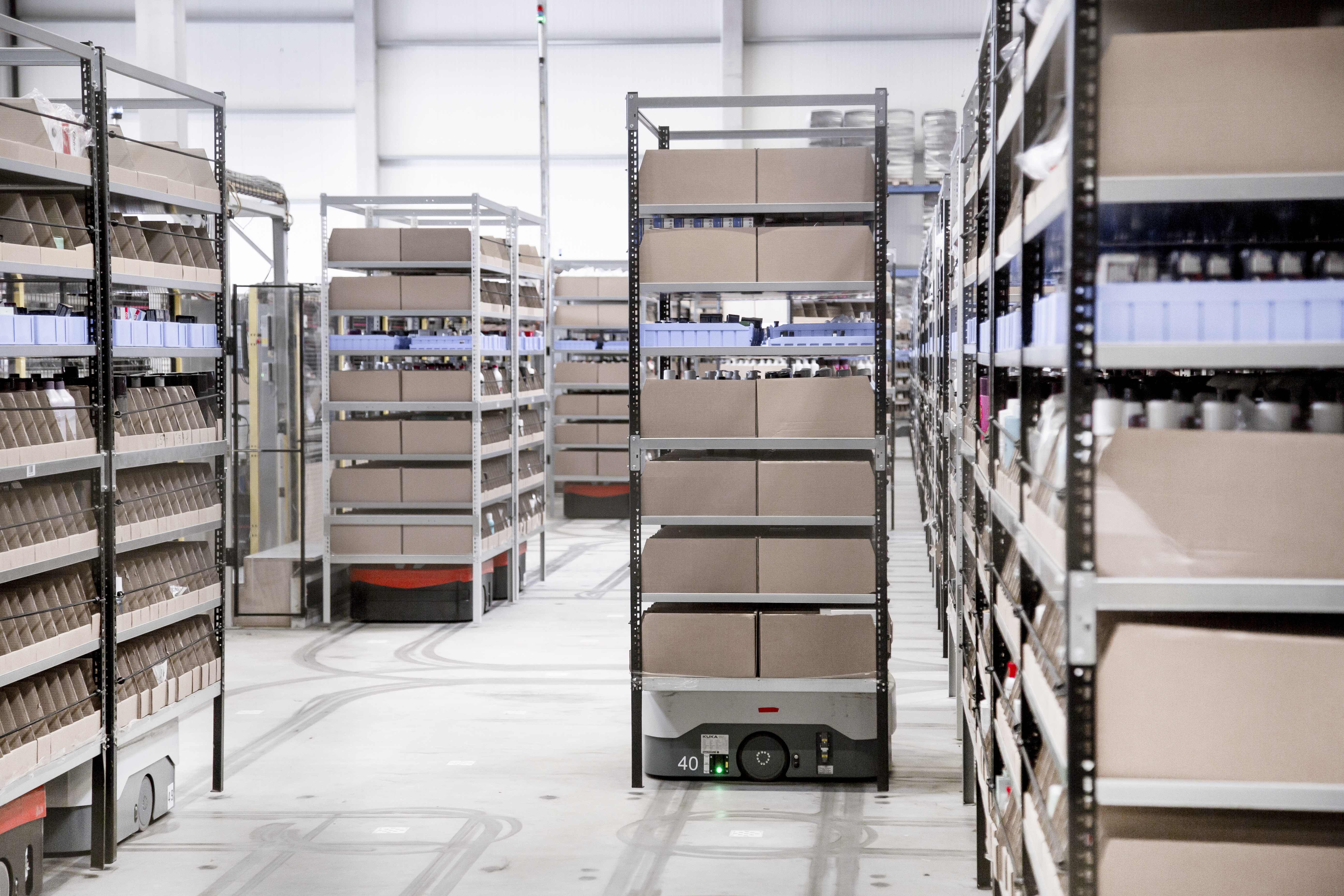E-waste: A Global Challenge in Need of Sustainable Solutions
The exponential growth of electronic waste, or e-waste, presents a formidable challenge to global sustainability efforts. In 2019 alone, a staggering 53.6 million tonnes of e-waste were generated worldwide, yet only a meagre 17.4% underwent formal collection and recycling1. As we confront the urgent need for sustainable practices, returns management emerges as a pivotal aspect of supply chain operations, particularly within the framework of the circular economy.
The Circular Economy Paradigm: A Call to Action
In today’s commercial landscape, sustainability has emerged as a paramount concern. With an increasing number of companies embracing the principles of the circular economy, there's a concerted effort to minimize waste and optimize resource utilization. According to Statista, the Circular Economy is estimated to be a USD 700 billion industry by 20262. Within this evolving paradigm, returns management assumes a pivotal role in nurturing a circular ecosystem.
By revolutionizing conventional practices and embedding sustainability across every phase of the return journey—ranging from initiation to processing and repair—enterprises can adeptly navigate the intricate intricacies of returns management. This strategic approach not only mitigates environmental impact but also fosters a virtuous cycle of value creation. Moreover, by seamlessly integrating sustainable practices into return policies and processing mechanisms, businesses can go beyond mere compliance to actively cultivate enduring brand loyalty among consumers.
In essence, the convergence of returns management and sustainability not only drives operational efficiency but also reinforces corporate responsibility. It represents a proactive stance towards environmental stewardship while simultaneously enhancing customer satisfaction and loyalty.
Return Initiation: Catalyzing Circular Practices from the Outset
Return initiation serves as the cornerstone of a circular economy, laying the foundation for sustainable practices. It is imperative for businesses to streamline return processes while aligning with sustainability objectives. Key to this is empowering customers to generate return validation rules, thereby ensuring accuracy and efficiency in the validation process. By providing stakeholders with transparent updates on Return Merchandise Authorization (RMA) status, businesses can foster trust and accountability, driving the transition towards a circular ecosystem.
Return Processing: From Validation to Sustainable Disposition
Efficient return processing is the linchpin of returns management, balancing validation with sustainable disposition. Upon receipt at warehouses, rigorous RMA validation procedures are employed to scrutinize both the physical condition and adherence to system attributes. This meticulous process minimizes waste by ensuring that only eligible RMAs proceed, thereby mitigating environmental impact.
Furthermore, first-level grading and disposition enable swift categorization of validated RMAs, guiding targeted actions such as refurbishment, repurposing, or recycling. By optimizing resource utilization within the circular economy framework, businesses can maximize the value extracted from returned goods while minimizing environmental footprint.
Repair Processing: Promoting Product Longevity and Resource Efficiency
Central to the ethos of a circular economy is the concept of extending product lifecycles through repair and refurbishment. Through comprehensive repair services, including component replacement and meticulous washing, returned products are rejuvenated, minimizing waste and upholding principles of resource efficiency.
Moreover, parts harvesting and reselling emerge as integral components of a circular strategy, diverting non-repairable or refurbished goods to recycling vendors or second-life markets. By stimulating secondary markets and reducing environmental impact, businesses contribute to the holistic vision of circularity.
Embracing a Holistic Approach to Returns Management
In navigating the complexities of returns management within a circular economy, a holistic approach is paramount. It transcends transactional processes, embodying a paradigm shift towards sustainable practices and responsible resource stewardship. By empowering customers, streamlining processing, and prioritizing repair and reuse, businesses forge a symbiotic relationship between profitability and planetary well-being.
 Collaboration across stakeholders is indispensable in realizing the full potential of returns management within the circular economy framework. From manufacturers to logistics partners, fostering a collective commitment to sustainability fosters innovation and propels the transition towards a regenerative economic model.
Collaboration across stakeholders is indispensable in realizing the full potential of returns management within the circular economy framework. From manufacturers to logistics partners, fostering a collective commitment to sustainability fosters innovation and propels the transition towards a regenerative economic model.
Looking Ahead: Innovation and Collaboration as Catalysts for Change
As we navigate the challenges of returns management in the circular economy era, continual innovation and collaboration emerge as linchpins of success. Embracing emerging technologies such as AI-driven analytics and blockchain-enabled traceability holds the promise of further enhancing transparency, efficiency, and sustainability within the returns ecosystem.
Furthermore, by forging strategic partnerships and engaging in cross-industry dialogues, businesses can leverage collective expertise and resources to surmount shared challenges and drive systemic change. Together, we have the opportunity to reshape the landscape of returns management, catalyzing a transformative shift towards a more regenerative and resilient supply chain ecosystem.
Pioneering Sustainable Commerce in the Circular Economy
Returns management in the circular economy transcends conventional practices, embodying a commitment to resource efficiency, environmental stewardship, and customer-centricity. By embracing a comprehensive approach that encompasses return initiation, processing, and repair, businesses catalyze a transformative shift towards a more regenerative and resilient supply chain ecosystem.
As we chart a course towards a sustainable future, let us seize the opportunities that lie at the intersection of commerce and conscience, forging a path towards prosperity for both business and planet alike. Through innovation, collaboration, and a steadfast commitment to sustainability, we can pioneer a new era of returns management that not only drives economic value but also safeguards our planet for generations to come.
At DB Schenker, we collaborate with clients to meet their sustainability objectives, yielding benefits across various fronts.
 Case Example: Achieving Efficiency and Cost Savings through Consolidation
Case Example: Achieving Efficiency and Cost Savings through Consolidation
In a compelling case example, collaboration between DB Schenker and a customer exemplifies the potential for efficiency gains and cost savings within returns management. By consolidating operations from separate facilities into a unified approach in one location, the customer realized significant benefits.
Through our strategic consolidation efforts, DB Schenker partnered closely with the customer to unlock substantial financial benefits. Leveraging our state-of-the-art contract logistics warehouse, the customer realized an impressive USD 60 million in proceeds from the resale of pre-owned equipment. This achievement underscores our commitment to optimizing logistical operations and maximizing asset value for our clients. Additionally, our tailored transportation and warehousing solutions resulted in significant cost savings, amounting to USD 5 million. By streamlining their supply chain processes, we not only enhanced efficiency but also contributed to their bottom line. Furthermore, our collaborative approach led to revenue gains of USD 2.5 million through the resale of equipment, highlighting the tangible impact of our partnership on their business growth. Moreover, our focus on sustainability and resource optimization enabled the customer to avoid over half a million USD in costs by efficiently reusing parts for field services. This multifaceted success demonstrates the power of our integrated solutions in driving tangible value across various facets of our customer's operations.
 A Comprehensive Strategy to Meet Customer Objectives
A Comprehensive Strategy to Meet Customer Objectives
Working collaboratively with our client, DB Schenker formulated an all-encompassing strategy to attain their goals by capitalizing on existing infrastructure and strategic alliances. This forward-thinking approach entailed establishing versatile campuses strategically situated to execute pivotal functions and optimize operational efficacy. These campuses served as integrated hubs accommodating various operations, including global shipping hubs for raw materials, logistical centers for fulfilling finished goods orders, and reverse logistics hubs for managing customer returns.
By consolidating repair and refurbishment services with warehousing facilities within these campuses, we maximized operational efficiency, resulting in significant cost reductions and sustainability benefits. Furthermore, the co-location of multifunctional activities in one centralized location facilitated the establishment of a closed-loop circular economy, further enhancing sustainability and resource optimization.
Through innovative measures such as virtual transfers and collaborative repair partnerships, DB Schenker sets a precedent for transformative advancements within the returns management landscape. The integration of returns management into the circular economy signifies a fundamental shift towards sustainable commerce, underscored by innovation, cooperation, and unwavering dedication to environmental stewardship.
By embracing holistic strategies that prioritize resource efficiency and customer satisfaction, businesses can spearhead a new era of returns management, one that not only generates economic value but also safeguards the planet for future generations.
 Expanding on the benefits of returns management systems for electronics within the context of the circular economy:
Expanding on the benefits of returns management systems for electronics within the context of the circular economy:
Resource Conservation: Returns management systems enable the efficient recovery and reuse of valuable resources from returned electronics. By refurbishing and repurposing components and materials, these systems minimize the need for virgin resources, conserving natural materials such as metals, plastics, and rare earth elements. This resource conservation contributes to the reduction of environmental degradation associated with resource extraction and processing.
Reduction of E-Waste: Effective returns management systems play a crucial role in diverting electronic waste from landfills. By refurbishing and reselling returned electronics, or responsibly recycling materials, these systems help mitigate the growing problem of e-waste accumulation. This not only reduces the environmental impact of discarded electronics but also prevents harmful substances from leaching into soil and waterways, safeguarding ecosystems and public health.
Extended Product Lifecycles: Returns management systems promote the concept of extended product lifecycles by facilitating repair and refurbishment processes. By providing repair services and refurbishing returned products, these systems extend the useful life of electronics, thereby delaying their entry into the waste stream. This extends the value and utility of electronic products, maximizing the return on investment for both consumers and manufacturers while minimizing environmental impact.
Cost Savings for Businesses and Consumers: Implementing robust returns management systems can lead to significant cost savings for businesses and consumers alike. For businesses, efficient returns processes reduce the financial burden associated with handling and disposing of returned goods. By maximizing the value extracted from returned products through refurbishment and resale, businesses can recoup losses and even generate additional revenue streams. Similarly, consumers benefit from reduced costs through refurbished or discounted electronics, providing access to quality products at lower prices.
Brand Reputation and Customer Satisfaction: A well-executed returns management system can enhance brand reputation and customer satisfaction. By providing seamless return processes, timely resolution of issues, and access to refurbished products, businesses can build trust and loyalty among consumers. Transparent and sustainable returns practices demonstrate corporate responsibility and environmental stewardship, resonating with environmentally conscious consumers and enhancing brand perception.
Regulatory Compliance and Risk Mitigation: Effective returns management systems help businesses navigate regulatory requirements and mitigate associated risks. By ensuring compliance with e-waste regulations and responsible disposal practices, businesses minimize the risk of fines, penalties, and reputational damage. Additionally, transparent and traceable returns processes facilitate compliance with product warranty obligations and regulatory reporting requirements, reducing legal and financial liabilities.
Market Differentiation and Competitive Advantage: Embracing sustainable returns management practices can serve as a point of differentiation and competitive advantage in the marketplace. Businesses that prioritize environmental sustainability and circular economy principles can distinguish themselves from competitors, attract environmentally conscious consumers, and capture market share. By aligning with evolving consumer preferences and societal expectations, businesses can position themselves as industry leaders and drivers of positive change.
In summary, returns management systems for electronics offer a multitude of benefits within the circular economy framework, including resource conservation, e-waste reduction, extended product lifecycles, cost savings, brand reputation enhancement, regulatory compliance, and market differentiation. By embracing sustainable returns practices, businesses can simultaneously drive environmental impact reduction, enhance operational efficiency, and create value for both stakeholders and society as a whole.
https://youtu.be/BLm5wWtyveY?si=Uf7QOUJqZf1Fi84u
1 Reference WHO https://www.who.int/news-room/fact-sheets/detail/electronic-waste-(e-waste)#:~:text=Key%20facts,collected%20and%20recycled%20(2).
2 Statista: https://www.statista.com/statistics/1337519/circular-economy-market-revenue/
Lucy Stephen Leifgen is a senior manager in the Contract Logistics / SCM business at DB Schenker. DB Schenker is one of the world’s leading global logistics providers — supporting industry and trade in the global exchange of goods through land transport, worldwide air and ocean freight, contract logistics and supply chain management. At DB Schenker, Lucy is dedicated to strategic communication in contract logistics and supply chain management.